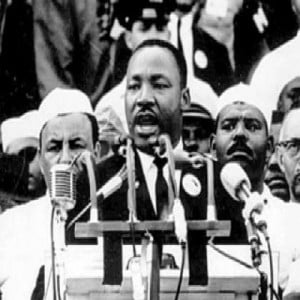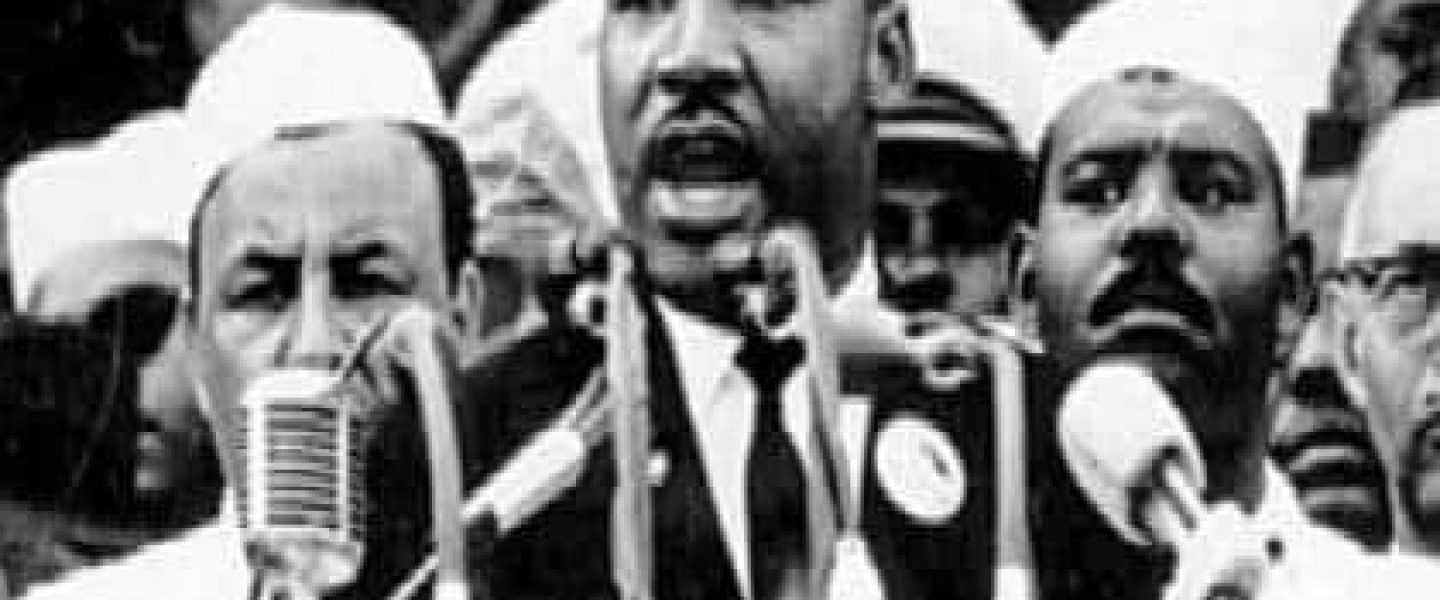 Today marks the 50th anniversary of the ‘March on Washington’ led by Martin Luther King Jr. As described by Wikipedia:
Today marks the 50th anniversary of the ‘March on Washington’ led by Martin Luther King Jr. As described by Wikipedia:
“The March on Washington for Jobs and Freedom or “The Great March on Washington”, as styled in a sound recording released after the event, was one of the largest political rallies for human rights in United States history and called for civil and economic rights for African Americans. It took place in Washington, D.C., on Wednesday, August 28, 1963. Martin Luther King, Jr., standing in front of the Lincoln Memorial, delivered his historic “I Have a Dream” speech advocating that racial harmony should prevail upon the march.”
Despite the fact that usage rates of marijuana are about the same for African Americans compared to white people, African Americans are far more likely to be arrested for marijuana than white people. Marijuana laws are a weapon for law enforcement to target African Americans, which is a very sad, unfortunate thing. If Martin Luther King Jr were alive today, how would he feel about marijuana prohibition? I don’t think that he would be pro-marijuana use, but I do absolutely think that he would be anti-marijuana prohibition. I think Mr. King would be appalled by President Barack Obama’s anti-marijuana policies.
The NAACP has been fighting for marijuana reform for a handful of years now. Below is a press release from the NAACP describing their support for an end to the war on drugs. I think Martin Luther King Jr. would be proud:
(Los Angeles, CA) – Today the NAACP passed a historic resolution calling for an end to the war on drugs. The resolution was voted on by a majority of delegates at the 102nd NAACP Annual Convention in Los Angeles, CA. The overall message of the resolution is captured by its title: A Call to End the War on Drugs, Allocate Funding to Investigate Substance Abuse Treatment, Education, and Opportunities in Communities of Color for A Better Tomorrow.
“Today the NAACP has taken a major step towards equity, justice and effective law enforcement,” stated Benjamin Todd Jealous, President and CEO of the NAACP. “These flawed drug policies that have been mostly enforced in African American communities must be stopped and replaced with evidenced-based practices that address the root causes of drug use and abuse in America.”
The resolution outlines the facts about the failed drug war, highlighting that the U.S. spends over $40 billion annually on the war on drugs, locking up low-level drug offenders – mostly from communities of color. African Americans are in fact 13 times more likely to go to jail for the same drug-related offense than their white counterparts.
“Studies show that all racial groups abuse drugs at similar rates, but the numbers also show that African Americans, Hispanics and other people of color are stopped, searched, arrested, charged, convicted, and sent to prison for drug-related charges at a much higher rate,” stated Alice Huffman, President of the California State Conference of the NAACP. “This dual system of drug law enforcement that serves to keep African-Americans and other minorities under lock and key and in prison must be exposed and eradiated.”
Instead of sending drug offenders to prison, the resolution calls for the creation and expansion of rehabilitation and treatment programs, methadone clinics, and other treatment protocols that have been proven effective.
“We know that the war on drugs has been a complete failure because in the forty years that we’ve been waging this war, drug use and abuse has not gone down,” stated Robert Rooks, Director of the NAACP Criminal Justice Program. “The only thing we’ve accomplished is becoming the world’s largest incarcerator, sending people with mental health and addiction issues to prison, and creating a system of racial disparities that rivals Jim Crow policies of the 1960’s.”
Once ratified by the board of directors in October, the resolution will encourage the more than 1200 active NAACP units across the country to organize campaigns to advocate for the end of the war on drugs.
Founded in 1909, the NAACP is the nation’s oldest and largest civil rights organization. Its members throughout the United States and the world are the premier advocates for civil rights in their communities, conducting voter mobilization and monitoring equal opportunity in the public and private sectors.








